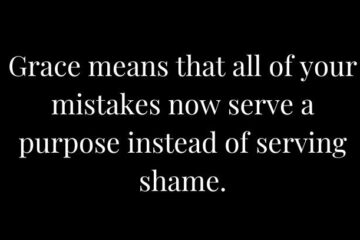We’ve all experienced regret — that heavy feeling when we know we’ve done something wrong. However, regret is only the beginning. While it acknowledges the mistake, it doesn’t fix it. That’s where repentance steps in.
In simple terms, regret looks back. Repentance moves forward.
That is the key difference. Regret says, “I feel bad for what I did.”
Repentance says, “I will change what I do.”
Why Regret Isn’t Enough
To begin with, regret is an emotional response. It shows that your conscience is still alive — and that’s good. But regret alone doesn’t bring transformation. You can feel terrible about your actions and still go back to them.
In contrast, repentance leads to lasting change. It’s not just about being aware of your sin — it’s about turning away from it completely.
Acts 3:19 — “Repent, then, and turn to God, so that your sins may be wiped out…”
According to Scripture, forgiveness doesn’t follow regret — it follows repentance.
So what’s the difference?
Regret says, “I messed up.”
Repentance says, “I messed up, and I’m ready to make it right.”
Zacchaeus: From Sorrow to Change (Luke 19:1–10)
Let’s look at Zacchaeus. He was a tax collector — wealthy but widely despised because of his corrupt profession. When he heard that Jesus was passing by, he didn’t sit still. Instead, he ran ahead and climbed a tree to see Him. That wasn’t just curiosity — it was desperation.
Clearly, Zacchaeus regretted his lifestyle. He was searching for something more. Despite his social status, he humbled himself publicly.
Then something remarkable happened. Jesus saw him, called him by name, and chose to stay at his house.
But the real transformation happened next.
Zacchaeus didn’t just welcome Jesus — he repented. He publicly confessed his sins and took responsibility by promising to:
- Give half his wealth to the poor
- Repay four times what he had stolen
Therefore, his story is a perfect example of repentance. He didn’t just feel guilty — he took action to change.
What Does True Repentance Involve?
Unlike regret, repentance is active. It’s not just an emotion — it’s a decision followed by action. In fact, here are the four clear steps of biblical repentance:
- You recognize your sin.
- You seek forgiveness from God.
- You correct your mistake.
- You commit not to repeat it.
Simply put, you don’t just feel sorry — you take steps to live differently.
- You don’t just feel. You fix.
- You don’t just cry. You correct.
- You don’t just pray. You act.
The People of Nineveh: A Nation That Turned
Another powerful example is found in Jonah 3:5–10. When Jonah warned the people of Nineveh, they didn’t ignore him. Instead, they responded with humility. They fasted, wore sackcloth, and turned from their wicked ways.
Because they repented, God had mercy. He spared them from destruction.
This story reminds us that repentance moves the heart of God. Not just emotion — but change — invites His forgiveness.
Final Thoughts: Why Repentance Matters More
To summarize, here’s the truth:
Many feel bad, but few turn back.
Many confess, but few correct.
Many fall, but few rise differently.
Therefore, don’t settle for regret. Let it lead you toward repentance.
- Don’t just sit in guilt — step into grace.
- Don’t just know the wrong — do what’s right.
- Don’t just stop something bad — start something better.
Ultimately, true repentance brings restoration. It’s not about perfection — it’s about a changed direction.
Remember This
Regret may touch your heart, but repentance transforms your life.



0 Comments